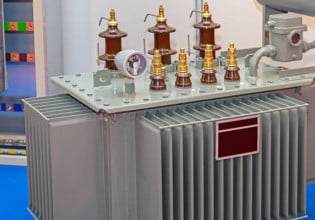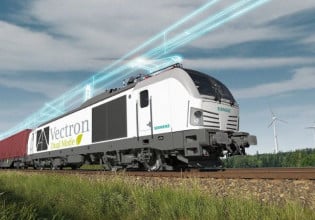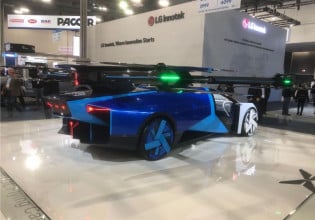Micropelt Introduces Thermoharvester-Driven Wireless Sensor Node
Micropelt GmbH, a specialist in thin film thermoelectrics, announced immediate commercial availability of what it describes as the world’s first thermo-powered wireless sensor system, the TE-Power NODE.
Micropelt’s built-in chip thermogenerator takes a few degrees of temperature differential and harvests that thermal energy to operate the wireless sensor node, enabling what is described as unlimited battery-free operation.
The TE-Power NODE evaluation kit transmits multiple channels of digital sensor data helping both users and integrators of thermoharvesters better understand many aspects of their implementation in terms of application scenarios and energy budgets.
The TE-Power NODE consists of a 60 by 27mm footprint aluminum base plate that carries up to two Micropelt MPG-D751 thermogenerators, allowing the energy supply to be scaled for the amount needed by the designated application. An aluminum heat spreader is mounted on top of the thermogenerators and is stabilized and insulated by a PCB which also holds the receptacles for various plug-on modules. The heat spreader features threaded holes for accessing various heat sinks with minimal effort, allowing for detailed exploration of the device’s thermal path and easy repair. To convert the variable incoming thermo-voltage into a battery-like constant voltage, the original TE-Power PLUS dc-dc converter was modified to supply a constant 2.4V and to charge a 100µF capacitor to feed the duty cycle of the accompanying pluggable wireless system.
Micropelt’s new evaluation kit uses widely accepted ultra-low-power technology from Texas Instruments (TI), supporting both IEEE 802.15.4 compliant and custom solutions. Dr. Joachim Nurnus, Micropelt’s CTO, explained the choice, "We wanted to ensure that the TE-Power NODE evaluation results are applicable to many existing solutions and can quickly be turned into real applications. Consequently, we selected Texas Instruments’ MSP430/CC25xx technology for its wide market penetration as much as for its technical feature set and good support."
To operate the wireless sensor node, it must be attached to a suitable heat source. After a few seconds the TE-Power NODE begins transmitting information to a PC via TI’s standard eZ430-RF2500 USB receiver module. Within as little as 2ms a minimized stack protocol transmits the temperature of the thermogenerator’s hot and cold sides once every second along with the respective operating voltage. An additional I²C standard based digital sensor interface provides a channel for optional transmission of data such as vibration or pressure values. The information is displayed on the PC such that users can easily assess the quality and consistency of the thermal power supply.
"Micropelt’s battery-free thermal energy harvesting technology can be used to power our ultra-low-power microcontrollers and RF transceivers, enabling endless possibilities in the wireless sensor market," said Volker Prueller, EMEA Marketing Manager, Catalogue MCU and Low-Power RF at Texas Instruments. "With increased interest for wireless sensor systems across many markets, Micropelt’s solution offers a renewable source of power and freedom from traditional batteries."
Dr. Nurnus is satisfied with his team’s results, "Our measurements prove that an effective 3.5°C across the thermogenerator can drive this application. This can even be achieved through harvesting body heat. The NODE’s flexibility will help our customers better understand the thermal path and why it can actually take 10 or 20°C difference to make it run."






